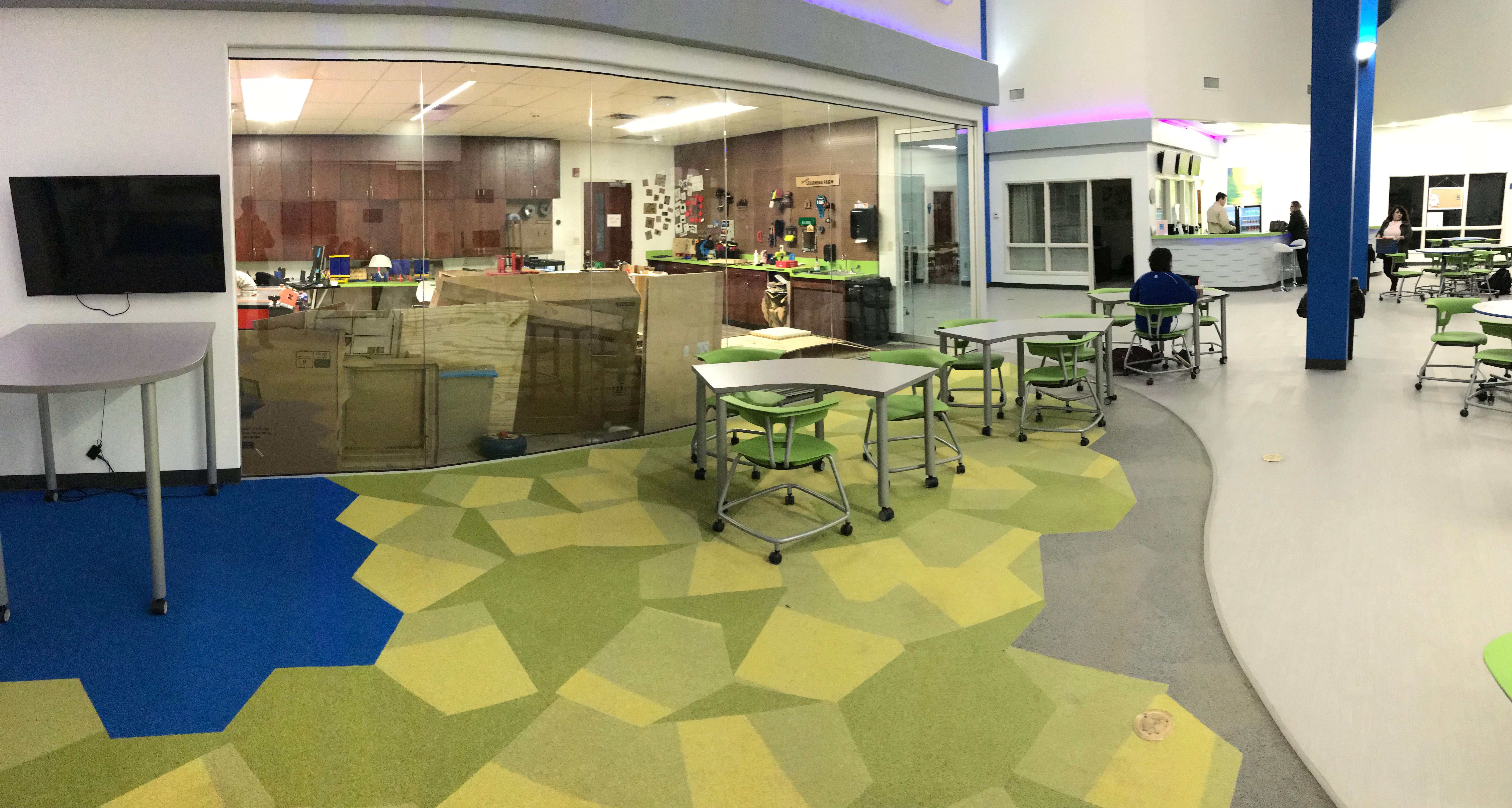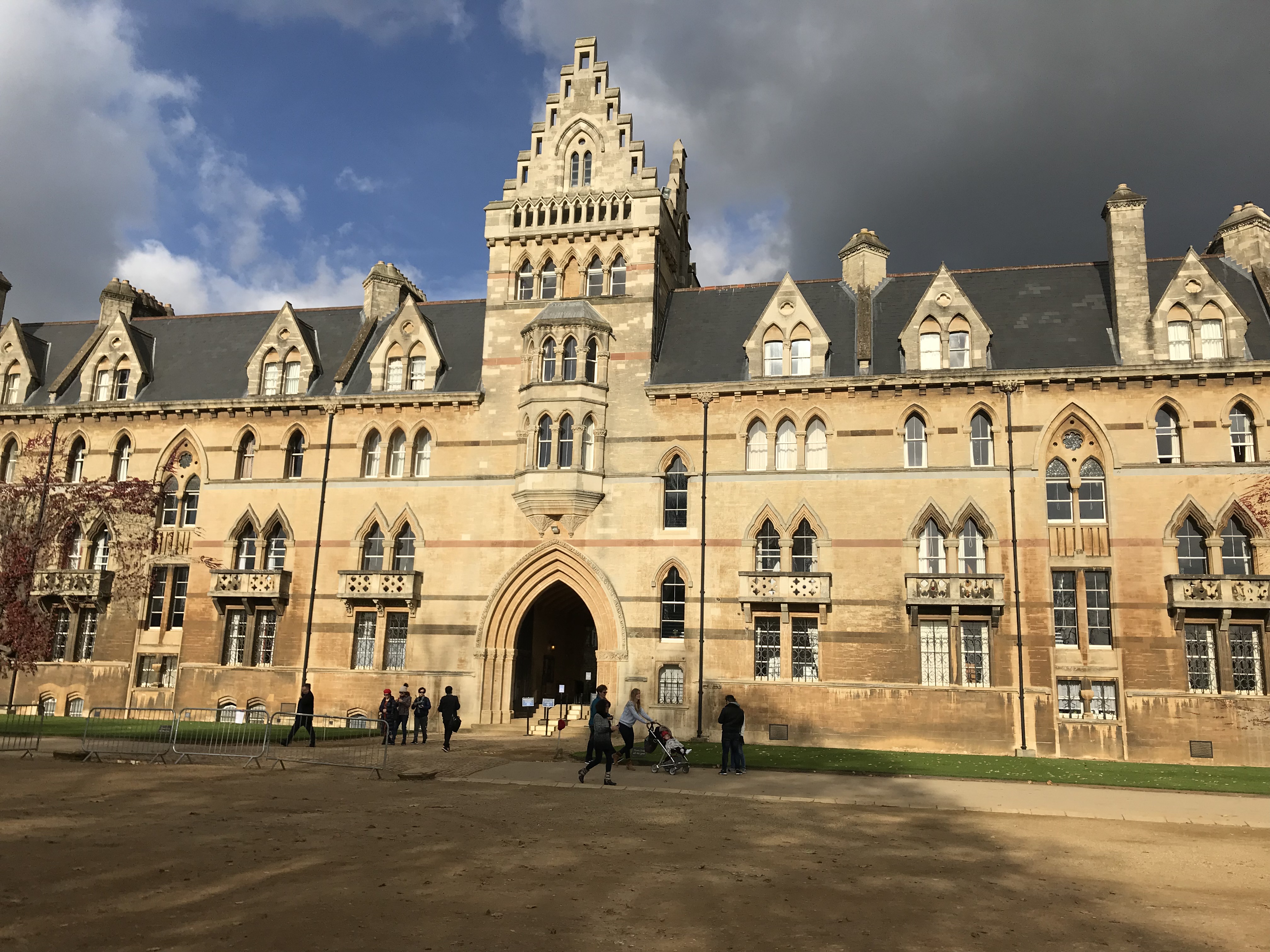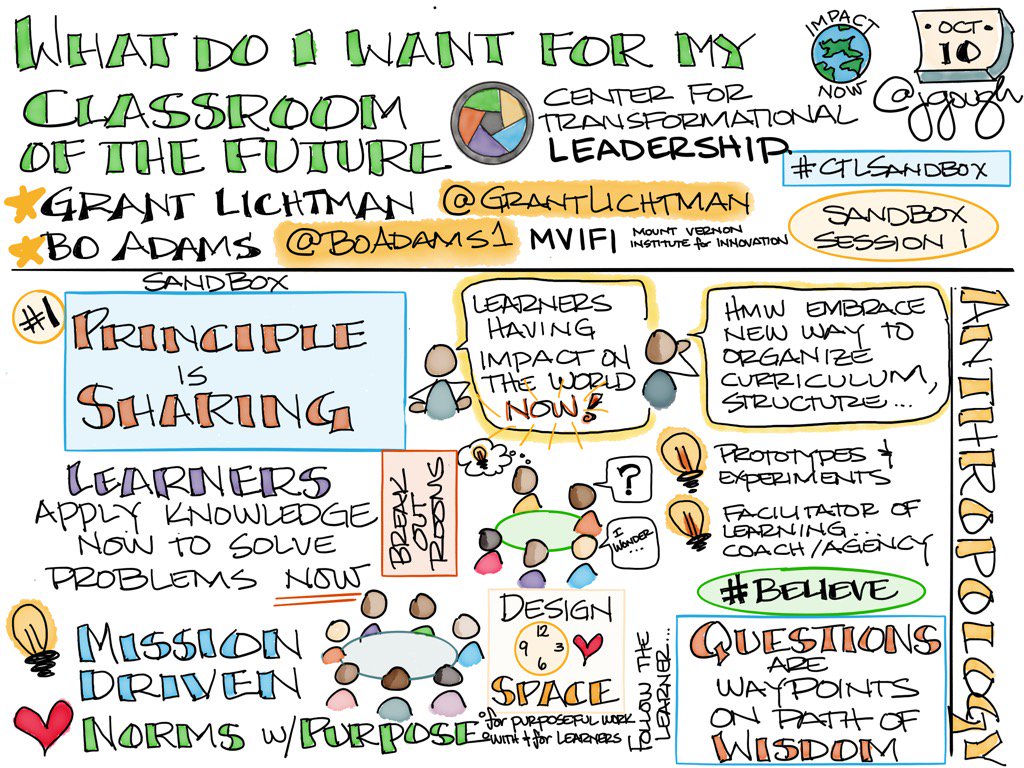My great-great aunt and uncle founded Francis Parker School in San Diego in 1912, and in the last 14 years I have been proud to give my time and expertise, along with some blood and sweat, to help transform that great school. So it was a bit like returning to the Mother Ship when I walked on the campus of Francis W. Parker School in Chicago this week. The two schools have no formal link, but both are named after one of the great leaders of the progressive movement in education, Col. Francis W. Parker. Principal Dan Frank was kind enough to convene a senior leadership group to meet with me to talk about how FWP School Chicago views the challenges of our evolving world and how education is innovating to meet those challenges.
I have two overarching takeaways from that conversation. The first is that FWP School is a place where deep, open, reflective thinking about how and what they teach is an utter fixture of their DNA, and probably has been for decades. The second is that there is real irony in coming to a school named for an icon, along with people like John Dewey, of progressive ideals that we are now turning back to in the name of “21st Century” education. So much of what we now agree as critical to student success in the future is straight out of Dewey, Parker, and others from more than a century ago. The leaders at FPW School believe that they have never really left that path at all.
Dan articulated an impressive list of leadership guidelines that he feels has kept FWP School focused closely to their historic and core mission of the original Parker values. I hope that by brevity I do not curtail at all their importance and usefulness for others:
- Articulate core values and a shared vision.
- Include all members of the community in true dialectic thinking; good ideas come from many places.
- Communicate with each other to make sure that change feels non-traumatic; that innovation when required is understood to be a solution, not a problem.
- Persevere with the details; don’t give up on good ideas just because they are tough or messy.
- Maintain synergy. We have a lot to do at schools, but by building teams of truly capable people who have the ability to align values with resources, success is much more likely.
- Find a balance of continuity and change that works with your school. Change is about both celebration and mourning, and managing both.
Bob Haugh, their CFO added that they resist defaulting to the latest “cool” thing. They are willing to try and fail, but they remain attached to the core values of the Parker philosophy, which, again, many other schools are now coming back to. FWP has not felt the same urgency to innovate towards 21C education that perhaps some other schools have in the last decade, because that pedagogy has always been here.
In terms of new or evolving programs and pedagogy, they cited the need deal with the massive visual inputs that students are exposed to today, and to create critical education with those just as we have over many years with written media. Student attention span and filtering mechanisms are in flux due to these changed inputs, and we constantly have to reflect on the different brain wiring between adults and students growing up now in this new ecosystem. More than ever, we should find importance in the core Dewey/Parker pedagogy of thoughtful self-reflection.
Damian Jones added that Parker works to get students to attend to the human condition by learning to deal with peers in very different communities. While technology is great to make information accessible, he says, this requires face-to-face contact. True connectivity requires us to move outside our physical space and comfort zone in order to develop a truly deep contextual understanding.
Martin Moran, who deals with both technology and curriculum development, said that some program innovation, particularly related to the use of technology, is “like teaching fish what water is”. While naturally comfortable with the mechanics, students need to understand the metacognition of how technology is reframing traditionally human relationships. At the same time some teachers feel that the combination of new technology and media can wash them away or marginalize them, and we need to make them comfortable, rather than fearful.
Dan repeated what I have heard time and again on this trip, regardless of whether a school is innovating rapidly or taking a slow-evolution approach: provide a consistent message to all constituents about how change contributes to the value of the organization. Clearly Francis W. Parker School in Chicago has been doing this for many years and they have a firm grasp of how well their history and roots ground them in the needs of students who will live in this young century.






Leave A Comment